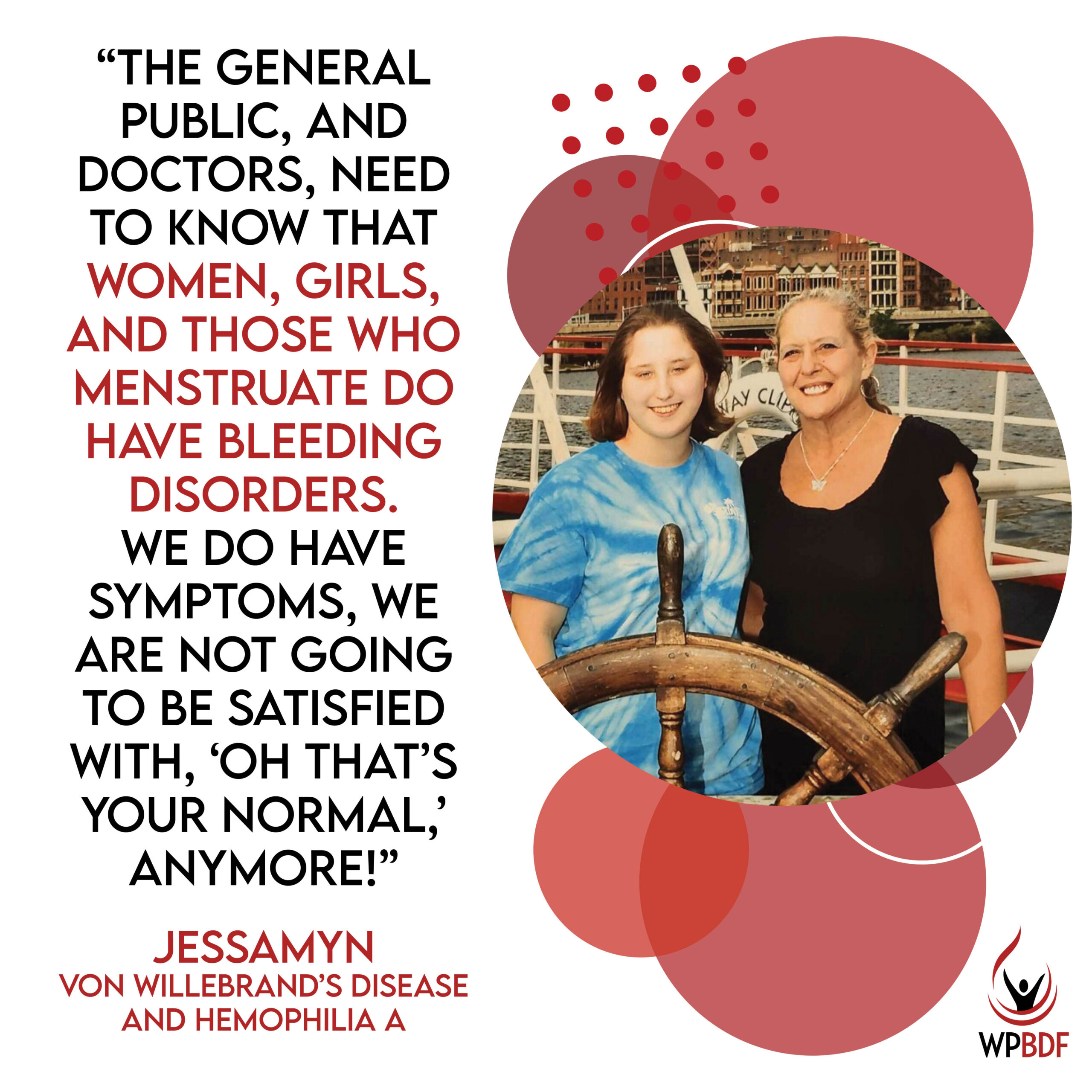Before Jessamyn received her bleeding disorder diagnosis, she had terrible, long, and miserable periods. Her family had a long history of bleeding issues, but once Jess started her period at age 11, she recalls her mother telling her, “Well, now it’s your turn too, I feel bad for you.” Both Jess’ mother and grandmother suffered from symptoms of a bleeding disorder, and both suffered numerous hemorrhagic strokes.
Jess was officially diagnosed with von Willebrand’s Disease and Hemophilia A when she was 38 years old. Prior to her diagnosis, she suffered from several miscarriages that left her in a medical state of shock from extreme blood loss. Jess also had seven children, and she bled for six months after giving birth to each one. One of her children passed away, and she later learned it was due to complete placental abruption that was related to her bleeding disorder. By finally learning about her diagnosis, she was relieved that she could finally understand her health complications.
Day-to-day, Jess does not receive treatment for her bleeding disorder. She does have to be extremely careful not to cut herself or bump into things as she will bleed heavily and bruise. Sometimes, she does get spontaneous nose bleeds and has desmopressin nasal spray and tranexamic acid for at home treatment when needed. Being a member of the Western Pennsylvania Bleeding Disorders Foundation (WPBDF) has given Jess the opportunity to join a large, supportive community of others affected by bleeding disorders. Even as large as the community is, Jess is surprised at the lack of awareness the general public has about this disease. “I can’t believe one can go so long without getting diagnosed, just being told, ‘Oh, that’s normal bleeding for you,’ by doctors, family, and others.”
Four of Jess’ six living children have a bleeding disorder. They are all very careful, as Jess says they can be a little clumsy and end up covered in bruises. Her daughters still have many years of periods to endure, and while they still live with heavy and long periods, they’ve found a tight-knit community filled with support and much needed education.
Jess believes that most critical need for women, girls, and those who menstruate in our bleeding disorders community is awareness and advocacy. “The general public, and doctors, need to know that women, girls, and those who menstruate do have bleeding disorders,” she says. “We do have symptoms, we are not going to be satisfied with, ‘Oh that’s your normal,’ anymore!”
To all women in the community, Jess says, “Do not be afraid to question your doctor if you feel that they are either not listening to you or are shirking their responsibilities. It is okay to speak up!”
If you or someone you know has symptoms of a bleeding disorder, life can be better if you know. Better if you seek care. Better if you get treatment. Find out if you are at risk by visiting www.betteryouknow.org. If you already know you’re at risk, you can still visit Better You Know to learn more about available resources.
Support WPBDF’s women, girls, and persons with the potential menstruate initiative during Bleeding Disorders Awareness Month by making a donation at: https://wpbdf.org/donations


